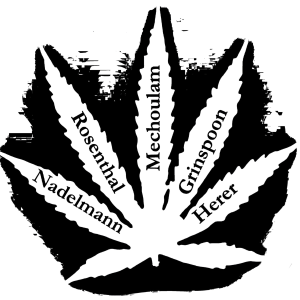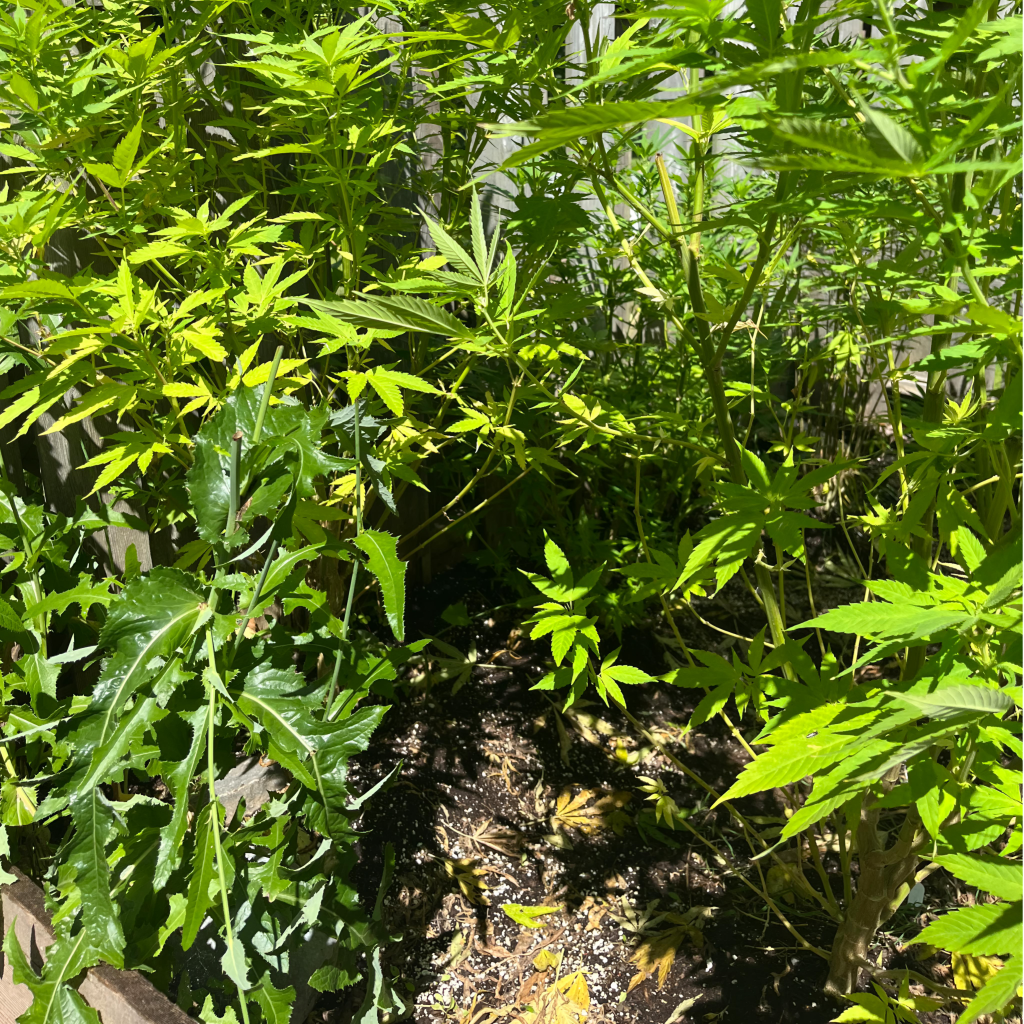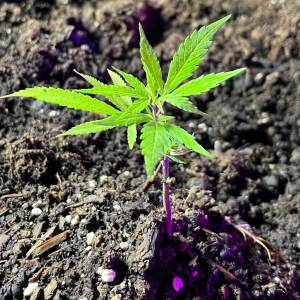Shalom! What a strange trip it’s been to the launch of Cannabis Jew Magazine—a title that tended to bring out the worst in many of the agents who I called to inquire about grants or insurance, and who refused to support this venture due to their distaste for either cannabis or Jews (or both). Like the day an agent said, in a tone of disdain: “We don’t cover companies that promote one religion over another.”
“Well,” I responded, “I wish it was that easy to get out. But it’s not possible to change your origin story, eh?”
She was not such a fan of Jewish humor and did not exactly appreciate my effort to correct her confusion about Jewish identity—in her mind, we’re a religion, not a people (and yes, there was an ad hoc, mini-lecture about the Holocaust). The next day, another agent said: “We don’t cover companies that promote addictive substances.” After I insisted “it’s about Jewish culture, history, and Israel’s health care system,” he simply repeated the same sentence.
It’s never fun when you murmur “Kafka” just to get a witness, but that exchange helped me to clarify the problem and the need for this magazine. The stigma attached to cannabis is not unrelated to anti-Jewish bias and the repetition of antisemitic paranoia; instead, they serve to cross-promote each other in a type of implicit bias—a default way of perceiving certain groups—that interprets the Jewish history of cannabis research as evidence that there is something wrong with us, or we need Jesus (or both).
Ever since Nixon responded to news about Dr. Lester Grinspoon’s groundbreaking 1971 book Marihuana Reconsidered by exclaiming “what the hell is wrong with the Jews, Bob?” Neo-Nazis have been preaching that we’re trying to get everyone stoned in our effort to take over the world. At play here are two interwoven and mutually dependent types of prejudice grounded in ideology that create this implicit bias about how we see Jews and Israel (often described as a criminal enterprise that should not exist, like the cultivation of cannabis). If we don’t find a way to convey the Jewish relation to cannabis and take pride in this history (in a creative way, with our language and humour), then it will be judged as shameful or criminal by the logic of anti-cannabis ideology that denies the right to consume and reinforces a negative view of Jews and Israel.
I didn’t have any of this in mind when I left academia to go to cannabis college in Nova Scotia; I really did think that my days of being a Jew who talked about Jews all day long were over. As it turned out, this vocation followed me when I found myself in a class of young men—the first Jew they had ever seen— at the start of our post-Kanye era, and it was just too uncomfortable to let them draw their own conclusions about why every leading scholar, scientist and advocate we studied was Jewish. To my surprise, they loved these mini-lectures about cannabis and Jewish culture, and my professor Dr. Av Singh (our Mensch of the Month) viewed them as essential to the curriculum.
However, I soon realized that the story about the role of cannabis in Jewish history, practice, and culture is so rich and complicated that it requires the community of “cannabis Jews” who carry on this tradition to relate and create it through dialogue and commentary. Cut to graduation, some conferences, and yadda yadda yadda here we are, and I’m writing my first Editor’s Spiel on the non-sense of the distinction between recreational and medical cannabis so we can start to represent ourselves, and Represent, in cannabis culture.
Recreational Cannabis is Medical Cannabis
I’m Ashkenazi, a descendant of Eastern European Jewry, now a remnant of white supremacy, which leaves a lot of us with shitty epigenetic luck and a tendency to be cranky because of all the generational trauma we’ve had to navigate; while appearing—to many—as neurotic, loud, obnoxious people who smoke way too much pot. In reality, many of us are subject to intrusive thoughts that disrupt our ability to stay chill and focused, and we consume cannabis to be productive and feel a bit more optimistic—about everything. For many (if not most) of us, recreation requires medication to supplement for an endocannabinoid system compromised by genetics or trauma, or both.
Although the distinction between the recreational and medicinal use of cannabis was meant to facilitate its legalization and increase access to its consumption in the U.S., Canada, and Israel, it has also served to reinforce the stigma attached to cannabis consumers. For it has only reinforced the view that cannabis should be consumed in private, hidden from children—in stark contrast to our (very) public consumption and promotion of alcohol.
This stigma, in turn, has hindered our ability to fully appreciate and utilize the medical benefits of cannabinoids that, when consumed, are taken up by receptor sites found throughout the body and enhance the ability of our endocannabinoid system (“ECS”) to maintain homeostasis among the body’s biochemical and physiological systems. This is evident in the reluctance of the medical establishment to recommend and widely prescribe cannabinoids as a safe, natural, and effective treatment for pain.
The conventional view of the difference is that recreational cannabis is something people want to get intoxicated, whereas medical cannabis is something people need to relieve pain. In his new book Seeing Through the Smoke (reviewed in this issue), Dr. Peter Grinspoon argues that it’s time to reexamine the purported difference between the recreational and medicinal use of cannabis, since in most cases the motivation for consumption cannot be reduced to one or the other; those who consume cannabis on a regular basis enjoy the therapeutic effects that allow them to relax, and have some fun. He also comments quite extensively on the conditioning factors that help explain the reluctance of medical practitioners to regard the mind-altering effects of THC as having any therapeutic value at all, such as anti-cannabis propaganda, political pressure, the biomedical model of medicine (it’s not supposed to be enjoyable), and the lack of objective, up-to-date information and lived experience (to name a few).
Ultimately this distinction between the recreational and medical use of cannabis rests on this ideological (and rather colonialist) insistence that there is no therapeutic value in “getting high,” or consuming cannabis to alter one’s state of consciousness. Indeed, even doctors who do advocate for cannabinoid therapy often insist that the medical benefits of THC are unrelated to its intoxicating effects. I find it so confusing that I often wonder if these more progressive doctors have actually gotten high. Or perhaps they need a better sativa-leaning strain to experience the connection between cannabis-intoxication and therapeutic relief from anxiety, depression, and PTSD?
I found evidence to support this view on the interrelation between intoxication and medicine in cannabinoid therapy in a 2019 study conducted in Israel by Dr. Maya Lavie-Ajayi and Dr. Pesach Shvartzman on the use of medical cannabis for chronic pain. The study found that smoking cannabis provided significant relief from chronic pain even (and especially) when there was no reduction in pain level:
In clinical practice, patients often report a sense of relief when using medical cannabis, even when there is no reduction in their pain level . . . This discrepancy between subjective experience and medical variables highlights the need for a rigorous exploration of patients’ subjective experiences that is not based on predefined variables.
“Restored Self,” Pain Medicine (2019)
The patients interviewed for the study reported a “sigh of relief” connected to the corporeal experience of smoking cannabis, as well as a “return to normality,” often described as a life-changing treatment, e.g. “I can simply say that I was reborn;” “Everything has changed in my life. In my own experience smoking cannabis to manage the symptoms of PTSD, I have found that the intoxicating effects can alleviate the pain and persistence of flashbacks, anxiety, and depression. In colloquial terms, I usually say that smoking cannabis provides some space in my mind to think, apart from all the noise. This often includes the sense of a “restored self” expressed by the patients interviewed by Lavie-Ajayi and Shvartzman; an experience they describe as a therapeutic effect of smoking cannabis:
Restored Self is a bodily subjectivity that indicates a regained sense of self, of normality, and of control over one’s life. It is a subjective sense that does not necessarily correlate with objective levels of functioning.
The medicinal value of THC challenges the current biomedical understanding of cannabinoid therapy because it produces mind-altering effects with therapeutic value that are highly subjective, and “do not necessarily correlate with objective levels of functioning” capable in a state of sobriety.
The biomedical model that regards cannabis as a dangerous drug that must be carefully dosed to avoid intoxicating effects assumes institutional authority through the conceptual distinction between its recreational and medicinal use. However, this distinction does not account for the therapeutic value of recreation itself, or the ability to relax and feel optimistic when living with chronic pain, or a crushing sense of anxiety, or unresolved grief. The sort of existential healing experienced by many people who consume cannabis cannot be measured in quantitative or scientific terms, and it is no less essential to our wellbeing than relief from physical pain. Even more, the aforementioned study indicates that the intoxicating effects of THC actually enhance its analgesic properties for those who suffer from chronic pain. The bio-medical model is poorly suited to assess the medicinal value of an ancient plant that has evolved with our biochemical system to assist our ability to recover, rest and restore ourselves to ourselves after suffering pain and loss.
I think it’s safe to assume that after the apocalyptic tenor of the past few years, most people who consume cannabis rely on its mind-altering effects to reduce stress and find a way to relax and gain perspective after so much trauma and loss. Our cannabis consumption will also serve to boost the efficacy of our ECS to facilitate our ability to relax, eat, sleep, and forget—the same effects we expect from getting “high.” We should not promote a false equivalence between the mind-altering effects of cannabis and other substances in order to justify the distinction between the recreational and medicinal use of cannabis at the cost of greater access to its medical benefits. L’chaim!









